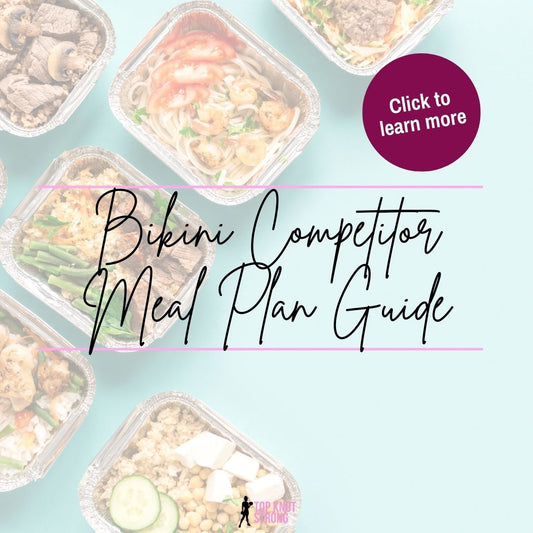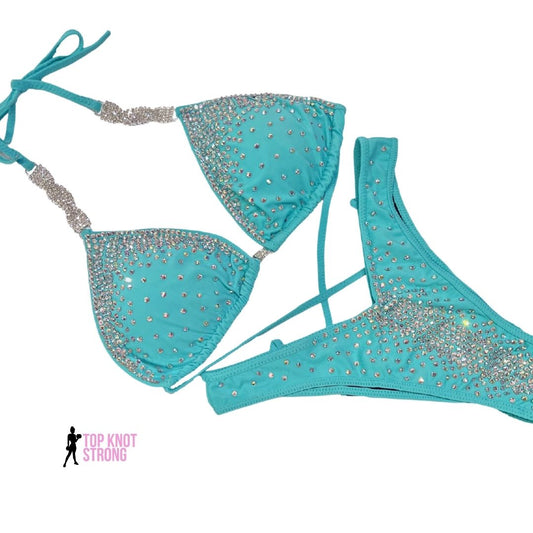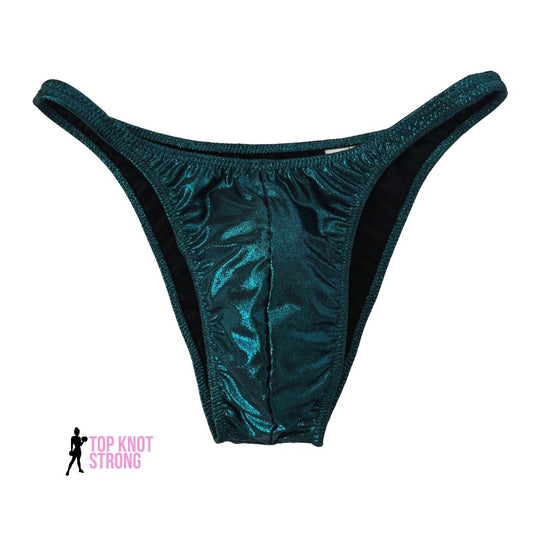When it comes to preparing for a bikini competition, your training is crucial, but nutrition is what will truly set you apart on stage. As you get closer to competition day, fine-tuning your diet becomes essential for showcasing your hard-earned physique in the best possible way. Understanding how nutrition impacts your success as a bikini competitor can help you feel confident, energized, and stage ready.
In this blog, we’ll break down key nutritional strategies for the weeks leading up to a competition, so you can fuel your body for peak performance while revealing the lean, sculpted look you’ve been working toward.
Recommended Reading: 12 Questions you Might be Afraid to Ask
How Nutrition Impacts Your Success as a Bikini Competitor

1. Mastering Your Macros: Finding the Right Balance
Macronutrients – proteins, carbohydrates, and fats – are the building blocks of any diet, but as a bikini competitor, finding the right balance is key to ensuring you’re getting lean while preserving muscle.
- Protein: Protein is essential for muscle maintenance, especially as you decrease body fat. Aim for at least 1-1.2 grams of protein per pound of body weight to support muscle recovery and prevent loss.
- Carbohydrates: In the early stages of prep, carbs can be moderately high to fuel your workouts. As you get closer to the competition, taper your carb intake to help shed water weight and reveal muscle definition.
- Fats: Healthy fats support hormone balance, which is critical as you reduce calories. Focus on sources like avocado, nuts, and olive oil, but keep fats lower in the final weeks to help with overall caloric reduction.
Pro Tip: Regularly adjust your macros based on progress. The needs of your body will change as you become leaner, so work with your coach to ensure your intake is properly aligned with your goals.
Join our Female Fitness & Bodybuilding Support Community today!
2. Hydration: The Unsung Hero of Prep
While many competitors focus heavily on food, proper hydration is equally vital to your competition success. Water helps with digestion, muscle recovery, and maintaining skin health – all essential for looking and feeling great on stage.
In the weeks leading up to the show:
- Start strong with water intake: Early in prep, aim for about a gallon of water per day to stay hydrated and assist with fat metabolism.
- Adjust in the final week: Some competitors practice water loading and depletion in the final week. This involves increasing water intake early in the week and then gradually reducing it to eliminate excess water retention, helping your muscles look more defined.
Pro Tip: Don’t drastically cut water too early – dehydration can impact performance, energy levels, and appearance. Work with your coach to properly time water depletion if you choose to follow this strategy.
3. Carb Cycling: Fine-Tuning for Definition
Carb cycling is a popular strategy used by bikini competitors to achieve a lean, muscular look. This approach involves rotating between high-carb and low-carb days to optimize fat loss while maintaining muscle.
- High-carb days: These days are typically scheduled around your hardest training sessions to give you extra energy and boost recovery.
- Low-carb days: Used to deplete glycogen stores, low-carb days can help shed fat while encouraging your body to use stored fat for fuel.
Pro Tip: The final days before your competition may include a carb-loading phase to fill out muscles and create a fuller look. Work closely with your coach to time this properly based on your individual progress.

4. Pre-Competition Meal Timing: Maximizing Energy and Definition
As competition day gets closer, how you time your meals becomes just as important as what you’re eating. Spacing your meals appropriately ensures you have steady energy levels, prevents bloating, and helps maintain muscle fullness.
- 5-6 smaller meals per day: Eating more frequently helps maintain blood sugar levels, boosts metabolism, and keeps your digestive system functioning smoothly.
- Meal timing around workouts: Consume your most carbohydrate-rich meal before or after your workout to optimize performance and recovery.
- Last meal before bed: Make this a light meal, high in protein, to support muscle repair overnight without feeling heavy or bloated in the morning.
Pro Tip: In the final week, some competitors reduce the volume of food in each meal to minimize bloating and help the body look as lean as possible on stage.
5. Micronutrients: Small but Mighty
While macronutrients are often the focus, micronutrients (vitamins and minerals) play a crucial role in how your body functions, particularly during prep when you're following a restricted diet.
- Electrolytes: Potassium, sodium, and magnesium help regulate water balance, nerve function, and muscle contractions. Ensuring you have enough electrolytes is key to avoiding muscle cramps and water retention.
- B Vitamins: These helps convert food into energy, support metabolism, and are crucial for overall energy levels, especially when calories are reduced.
- Calcium & Vitamin D: These support bone health and muscle function, which is important as you push your body through intense training.
Pro Tip: Consider adding a high-quality multivitamin to your diet to cover any potential nutrient gaps as your food intake becomes more limited closer to the competition.
6. Peak Week Nutrition: The Final Touch
Peak week, the last week before your competition, is where your nutrition becomes the most specific. This is the time when you dial in all the hard work and make small adjustments to ensure you’re stage ready.
- Carb loading: Depending on your physique, you may incorporate a carb-loading phase 1-3 days before the show to fill out your muscles and create a fuller, more defined look.
- Sodium management: Some competitors reduce sodium intake a few days before the show to minimize water retention. However, be careful not to cut sodium too drastically, it can be very dangerous. We recommend keeping it the same as what you have been accustomed to.
- Water intake: Tapering water intake may be part of your peak week strategy, but this should be done under the guidance of a coach to avoid over-dehydration.
Pro Tip: Peak week nutrition is highly individualized, so it’s important to experiment during practice runs before the actual competition. This ensures your body responds well and avoids any surprises on show day.
Conclusion: Nutrition is the Foundation of Your Success
Your success as a bikini competitor depends not just on the time you put in at the gym but also on how you fuel your body in the weeks leading up to the competition. By mastering your macros, staying hydrated, fine-tuning your carb intake, and timing your meals effectively, you’ll give your body what it needs to perform its best on stage.
Don’t overlook the importance of peak week adjustments and micronutrients, as these small changes can make a big difference in your overall look. Remember, everybody responds differently, so work closely with your coach to ensure your nutrition strategy is tailored to your unique needs.
Ready to take your competition prep to the next level? I offer personalized nutrition coaching and expert advice to help you feel confident and stage ready. Let’s make your competition day a success!
Schedule Free Consultation Now




